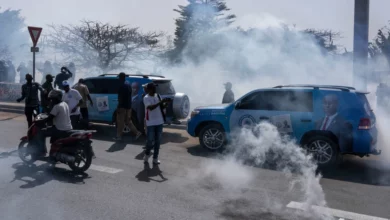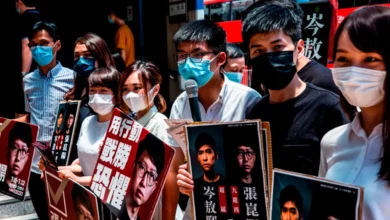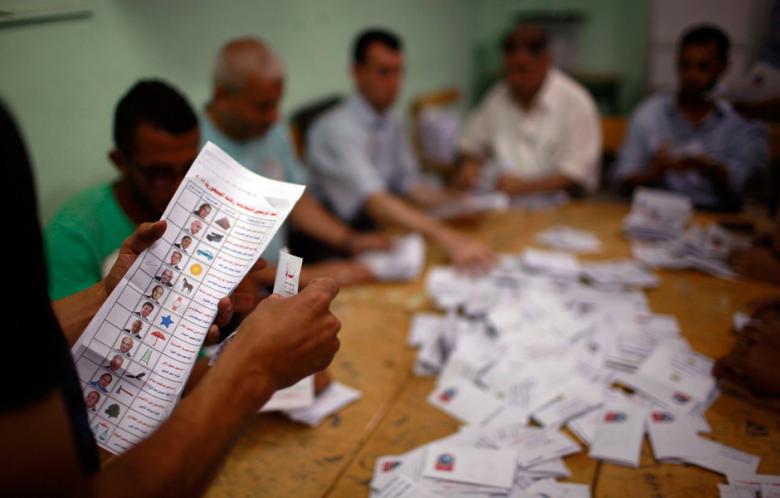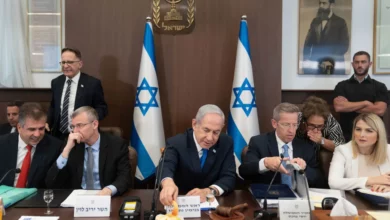RABAT, Morocco — Morocco's Arab Spring-inspired parliamentary elections saw a 45 percent turnout rate on Friday in the face of a boycott called by democracy activists who say the ruling monarchy isn't committed to real change.
A moderate Islamist party and a pro-palace coalition led by the finance minister are competing for the top spot, but the key test for authorities' legitimacy was how many voters cast ballots.
While the turnout, announced by the Interior Ministry is an improvement over 2007's 37 percent, it is still less than the rates predicted by officials who maintained the population has been galvanized by the king's reform efforts.
Since the last election, however, the number of registered voters has shrunk from 15 million to 13.5 million — despite the increase in population — which may also have brought up the participation rate.
Interior Minister Taieb Cherqaoui said the vote took place in an atmosphere of "calm and a spirit of responsibility," though opposition members alleged there were irregularities.
"We have spoken with our offices in every region and there was a lot of vote buying and the Interior Ministry mobilized transportation to bring voters to polling stations like animals," Lahcen Daoudi, a top official with the Islamist Justice and Development Party, told the Associated Press
In response to pro-democracy protests, the king amended the constitution over the summer giving the prime minister new powers, including the ability to dissolve parliament and make certain appointments. But the ultimate authority remains with the monarch.
As the polls closed Friday night and the counting of ballots began, Morocco's US and other Western allies were closely watching for the results to see how the North African kingdom is navigating its own Arab Spring.
"I've always voted, but this time it is more important," said Dr. Mohammed Ennabli, as he cast his ballot early in the morning in the affluent Agdal neighborhood. "Before it was the king who chose, now it is the people who choose."
Results in one voting booth in the area after polls closed had the Islamist Party, known by its French initials PJD, taking nearly 40 percent of the votes.
Many people, however, scorned a process they say has been going on for decades without any tangible effect on their lives.
"I won't vote, the promises are never kept — with or without the new constitution, it is the same," said Abdallah Cherachaoui, an unemployed 45 year old in the lower income district of Akkari. "They are laughing at us."
In the working class city of Sale, across the river from the capital Rabat, there was a steady trickle of voters to the school acting as a polling station, but some stayed outside.
"I voted in 2007 because the candidate was a member of my family, but he also disappointed me and as soon as the elections were over, I never saw him again, so I'm not making that mistake again," said Brahim Errami, 25, from his seat in a nearby cafe. "I pity the people going in and out of that school."
Morocco's reputation as a stable kingdom in North Africa has taken a hit with this year's protests over government corruption and heavy handed security forces. And its once-steady economy is creaking from the amount of money the government has pumped into raising salaries and subsidies to keep people calm amid the Arab world turmoil.
The election campaign has been strangely subdued, unlike the lively politicking in nearby Tunisia when it held the first elections prompted by the Arab uprisings last month.
Morocco with its many political parties and regular elections under the tight control of an all-powerful monarch was once the bright star in a region of dictatorships.
But all that has changed with the Arab uprisings that toppled dictators in Tunisia, Libya and Egypt. Now a political system that holds elections but leaves all powers in the hands of a hereditary king does not look so liberal.
Around 30 political parties are fielding more than 5,000 candidates to compete for 395 seats in parliament, including 60 set aside for women and 30 for "youth," under 40. A complex proportional system of representation means no party is likely to take more than 20 percent of the seats.
Under the new constitution, the king asks the party with the most seats to form the government, which could well be the PJD — if it can find parties willing to ally with it in a coalition.
The Islamists' biggest rival for the top spot is Finance Minister Salaheddine Mezouar's Rally of Independents, which leads an alliance of seven other pro-palace parties.
"This is a very important election for the Moroccan people and it confirms the choice made for an open process of democratization that is being consolidated by this election," he told the AP after voting. "This is really a moment of great emotion."
Like elsewhere in the Arab world, Moroccans hit the streets in the first half of 2011 calling for more democracy, and King Mohammed VI responded by amending the constitution and bringing forward elections.
But since then, the sense of change has dissipated, and while the king remains a respected figure, few have much confidence in parliament or the politicians in it.
"I voted because we need to elect a new parliament, but I voted blank for the simple reason that there is no one I can trust from the people that are being elected," said Chamseddin Baba, the manager of an IT company who voted in the wealthy suburb of Souissi. "I would like to vote for the best, but the best are not there.




